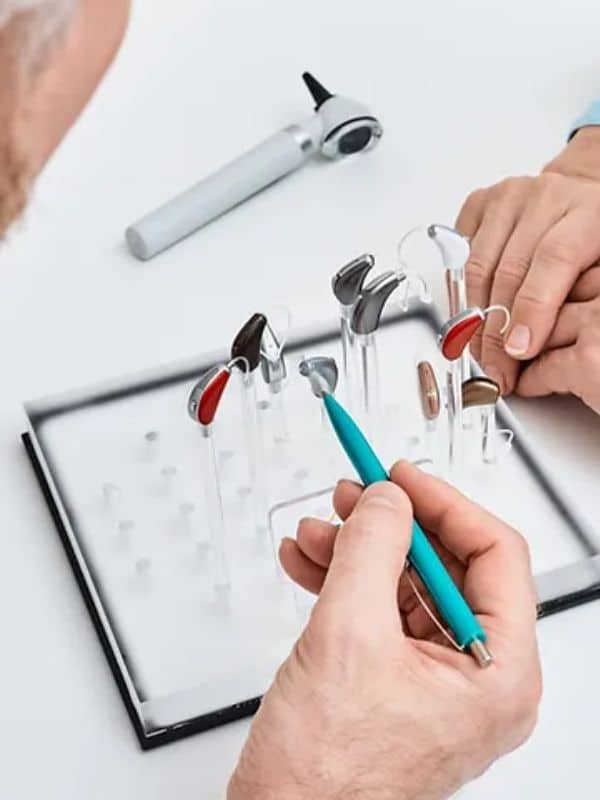Evaluation for Hearing Aids
Steps in a Hearing Aid Evaluation
If you suspect you may need hearing aids, the process begins with a thorough hearing evaluation. This assessment involves several key steps to ensure the most effective treatment plan is developed to meet your unique hearing needs.
1. Hearing Evaluation
The first step is a hearing evaluation, during which your hearing care professional will:
- Take a case history to understand how your hearing challenges affect your daily life and your family.
- Ask general health-related questions to determine if medical factors might be influencing your hearing.
2. Understanding Your Hearing Test Results
The results of your hearing test will identify which sounds you may be missing and guide your hearing care provider in making treatment recommendations. If the results indicate permanent hearing loss, hearing aids are often recommended.


3. Hearing Aid Recommendations
If hearing aids are suggested, your provider will:
- Explain the specific sounds or speech you struggle to hear.
- Demonstrate different hearing aid styles and features, allowing you to see, handle, or even try them.
Your hearing care provider will guide you in selecting the best hearing aid style and technology based on:
- Your degree of hearing loss.
- Lifestyle needs, such as hobbies or work environments.
- Financial considerations.
To better understand your preferences and needs, you may be asked to complete a questionnaire about your daily activities and hearing challenges. While the final decision is yours, your provider will recommend options tailored to your specific needs.
4. Customization and Fitting
Once you’ve chosen a hearing aid, your provider may:
- Take ear impressions if you select custom hearing aids or behind-the-ear models requiring earmolds.
- Order the hearing aids from the manufacturer.
- Program the devices to match your unique hearing profile and preferences.
5. Adjustment and Follow-Up
Hearing aids often require an adjustment period as you adapt to amplified sounds. During this time, your provider may fine-tune the settings to optimize your listening experience. Regular follow-ups ensure that your hearing aids are performing effectively and comfortably.
Start Your Hearing Journey
A hearing aid evaluation is a collaborative process designed to find the best solution for your hearing needs and lifestyle. With the guidance of your hearing care professional, you’ll be on the path to improved hearing and a better quality of life.
